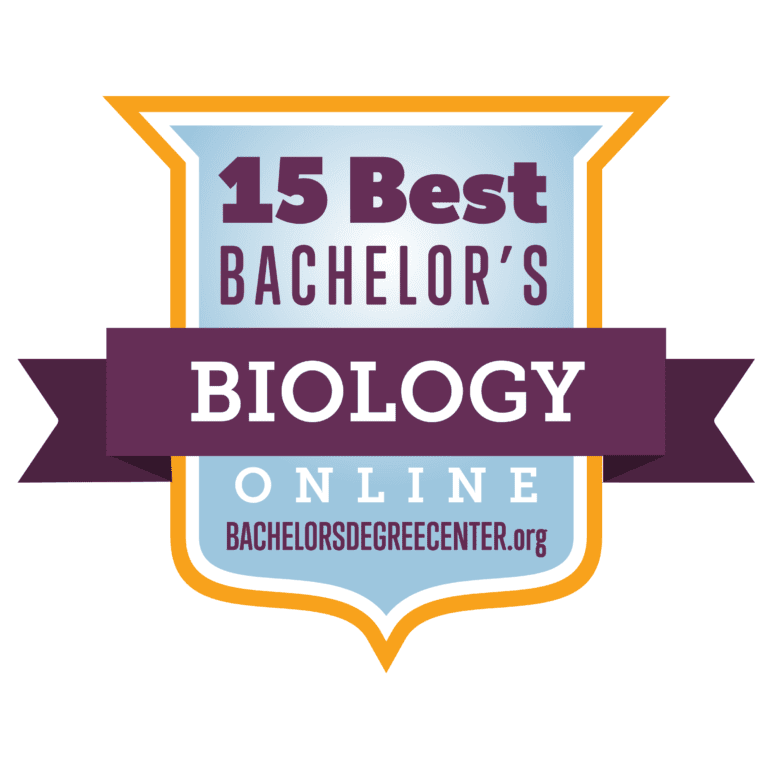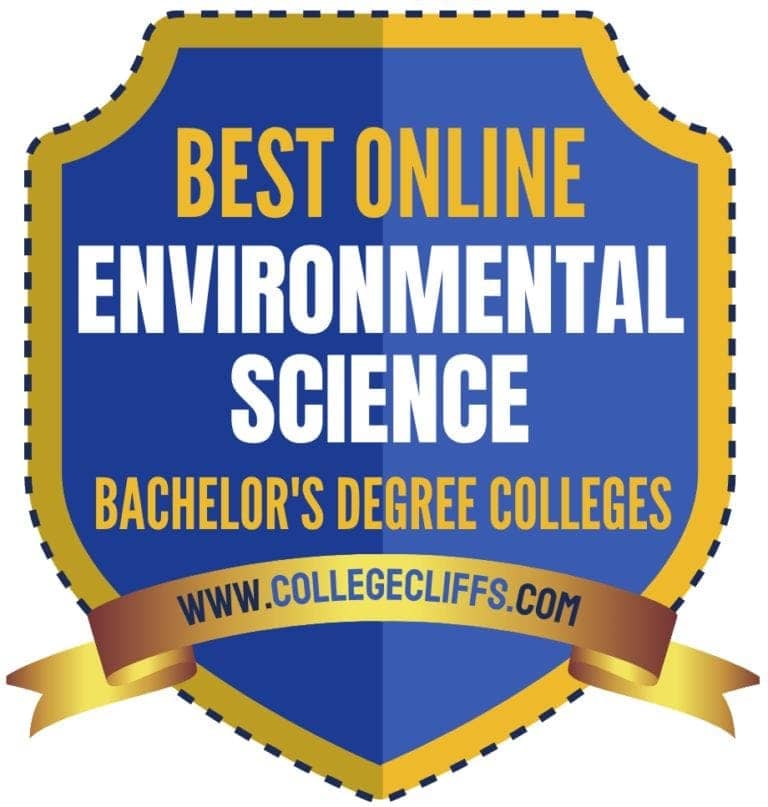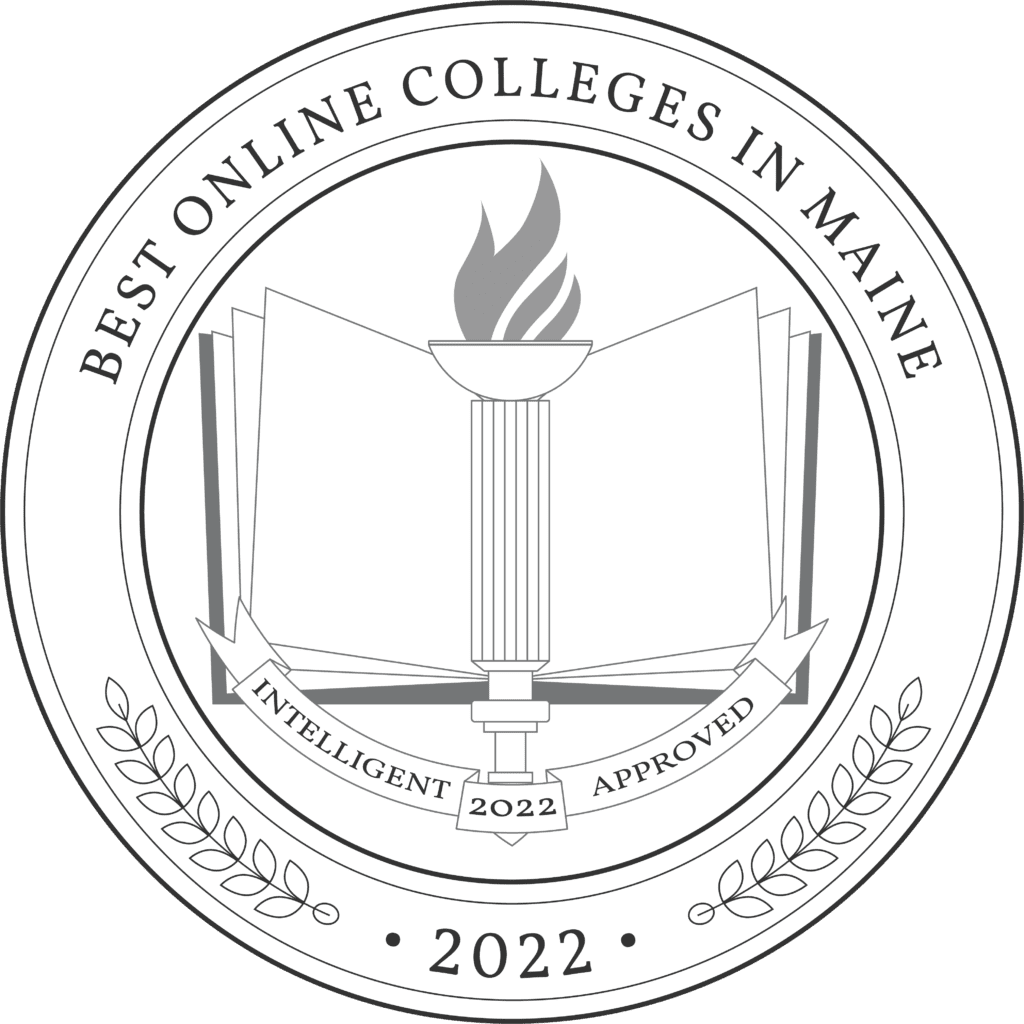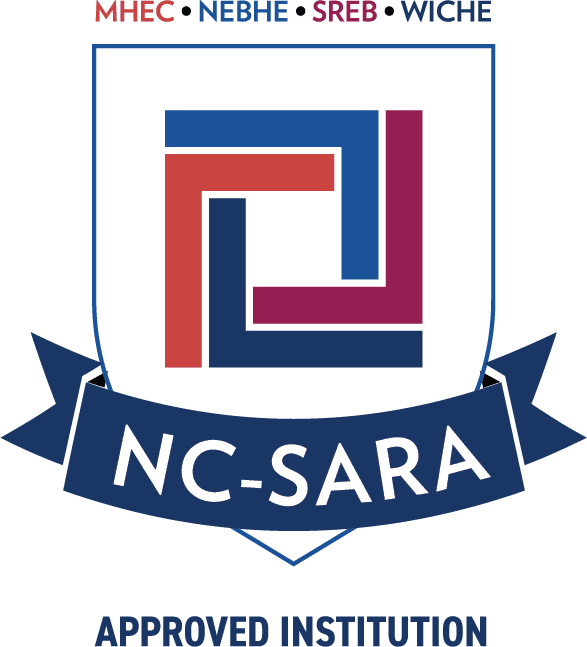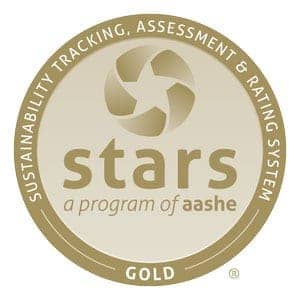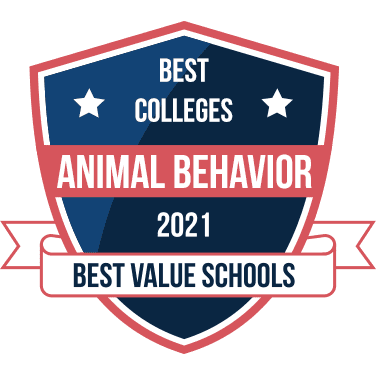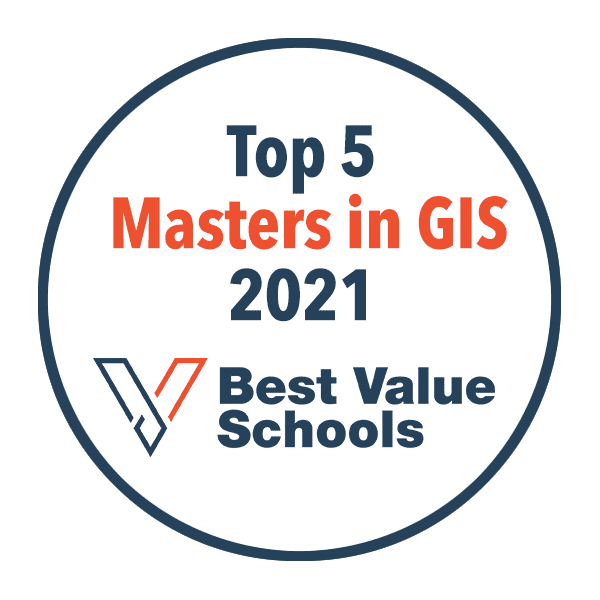Problem-based, Solution-oriented
With exploding interest in sustainable tourism, there are growing needs for eco-tour guides, regenerative hospitality specialist, sustainable destination managers, and tourism entrepreneurs. The in-person bachelor’s degree program in Regenerative Tourism offers a dynamic curriculum centered on sustainability, environmental stewardship, and ethical tourism practices, propelling students towards fulfilling careers in this burgeoning field. By immersing students in practical learning experiences encompassing environmental accounting, sustainable finance, strategic management, and ecological tourism, alongside a program-specific internship providing invaluable hands-on experience, this program equips graduates with the expertise and skills needed to thrive in shaping the future of responsible tourism and making a positive impact on the world.
Business Administration in Regenerative Tourism Highlights

Environmental Foundation

One-on-One Research

Career-Focused

Flexible Learning Options

Communication Skills

What Students Study
In a Business Administration in Regenerative Tourism degree, students will gain comprehensive knowledge and skills essential for promoting sustainability and social responsibility in the tourism industry. They will learn about Environmental Accounting to assess and manage environmental impacts, while also exploring Financing a Sustainable World to understand innovative financial models. Understanding the Sustainable Business Landscape equips students to navigate the intersection of business and sustainability, and Strategic Management for Social Change focuses on driving positive impact while maintaining profitability. Additionally, courses such as Global Supply Chain Operations, Environmental Marketing and Branding, and Tourism as an Integrated System provide insights into greening business practices, communicating sustainability initiatives effectively, and understanding the interconnectedness of various stakeholders within the tourism sector.
Course List
To earn a Baccalaureate degree in Business Administration in Regenerative Tourism, you must complete:
- General Education Core: 44 credits
- Program Core: 42 credits
- Electives: 34 credits
University Wide Requirements: A minimum of 120 earned credit hours, 30 credits at the 300 level or above, a minimum of 30 credits earned at Unity, and an overall cumulative GPA of 2.0 or above.
General Education Core
ART 1001 Creative Expressions: Art and the Natural World | 3 Credits
Unleash your creativity and develop artistic skills as you engage with the intricate beauty of the natural world and explore and reflect on the forms, structures, and patterns of nature. This dynamic course emphasizes personal expression over technical perfection, ensuring a space for artistic exploration. Uncover how the environment can shape your artistic voice through a variety of traditional and digital art media and techniques. Through hands-on projects, demonstrations, and interactive activities, you’ll draw connections between art and science, fostering a deeper understanding of both. Communicate your vision and provide peer feedback in a supportive, in-person learning community, setting the stage for a future where art and ecological consciousness intersect.
Credits: 3
Prerequisites: None
BIO 1001 Nature’s Kaleidoscope: Exploring Life’s Diversity | 3 Credits
 Explore the breathtaking diversity of life on Earth. In this course, you will delve into the realms of macroevolution, organismal structure and function, and the dynamic interactions within ecosystems. Through practical applications and cutting-edge industry practices, students will uncover the mechanisms of evolution and the intricate forms and functions of diverse organisms. This course integrates engaging hands-on activities, immersive fieldwork, and detailed case studies, equipping you with the skills and knowledge necessary to thrive as an environmental science and sustainability professional.
Explore the breathtaking diversity of life on Earth. In this course, you will delve into the realms of macroevolution, organismal structure and function, and the dynamic interactions within ecosystems. Through practical applications and cutting-edge industry practices, students will uncover the mechanisms of evolution and the intricate forms and functions of diverse organisms. This course integrates engaging hands-on activities, immersive fieldwork, and detailed case studies, equipping you with the skills and knowledge necessary to thrive as an environmental science and sustainability professional.
Credits: 3
Prerequisites: None
BIO 1002 Nature’s Kaleidoscope: A Laboratory Exploring Life’s Diversity | 1 Credit
Discover the wonders of biological diversity through Nature’s Kaleidoscope: A Laboratory Exploring Life’s Diversity. This course offers an immersive and interactive lab experience, revealing the intricate patterns and processes that shape life on our planet. Through hands-on experiments and engaging activities, you’ll explore the rich tapestry of life, honing your scientific inquiry skills. This course prepares you for careers in environmental science and sustainability by providing practical knowledge and laboratory expertise.
Credits: 1
Prerequisites: BIO 1001 (or concurrent enrollment)
CAR 1001 Essential Skills for Success and Career Planning | 1 Credit
This 1-credit course equips students with essential skills to excel in their studies and transition smoothly into their chosen careers. Students will engage in strategic goal setting and explore career paths using design thinking principles. Key activities include conducting industry research, participating in relevant career and industry events, and developing a personalized career plan. Additionally, students will gain valuable insights into critical thinking, self-advocacy, and effective use of campus resources.
Credits: 1
Prerequisites: None
CHM 1001 Chemistry in Action: From Theory to Practice | 3 Credits
Explore the fascinating world of chemistry, where you will dive into atomic theory, investigate the fundamental components of matter, master chemical bonding, and uncover molecular structure and reactivity. Additional emphasis is placed on nomenclature, stoichiometry, orbitals, electron configurations, the periodic table, intermolecular forces, aqueous solutions, and basic chemical reactions. Learn to balance chemical equations and explore key reactions such as acid/base, precipitation, and redox. This course equips students with essential knowledge needed to tackle the intricate environmental issues of tomorrow.
Credits: 3
Prerequisites: None
COM 1001 Rhetoric in Nature: Writing for Environmental Impact | 3 Credits
Immerse yourself in the art of effective communication, an essential skill for success in environmental and sustainability careers. This course blends interactive workshops with collaborative sessions that enhance your professional writing skills. Learn to craft compelling narratives, reports, and persuasive texts for diverse audiences, with a focus on organization, evidence-based writing, clarity, and cohesion. Develop strategies for drafting, revising, and refining your writing, and become a more impactful communicator ready for professional challenges.
Credits: 3
Prerequisites: None
COM 2001 EcoMedia: Storytelling for Sustainability | 3 Credits
Dive into the dynamic world of EcoMedia, where the power of storytelling meets environmental advocacy. EcoMedia uses various media platforms and communication strategies to inform, educate, and engage the public on environmental issues. Learn to craft compelling environmental narratives through social media, podcasts, video, and print, promoting sustainability and influencing public policy. Engage in hands-on projects that explore the transformative power of storytelling to shape public perceptions and drive positive environmental actions. Develop skills in media production, strategic communication, and ethical reporting to effectively convey stories. Prepare to become a persuasive advocate for the environment, equipped with the tools to make a meaningful impact through media.
Credits: 3
Prerequisites: None
COM 3001 Messages that Resonate: Creating Impactful Communication | 3 Credits
Elevate your communication skills to make a significant impact. Learn and apply sophisticated techniques for crafting persuasive messages and compelling campaigns. Engage in practical exercises and case studies to analyze and develop effective communication strategies. Gain expertise in leveraging digital tools, engaging with diverse stakeholders, and addressing complex ethical considerations. Develop essential skills to effectively convey your messages to diverse audiences, preparing you for success in today’s dynamic job market
Credits: 3
Prerequisites: None
ENV 1001 The Life Blood of Our World: Rivers, Lakes, and Streams | 3 Credits
Dive into the dynamic world of rivers, lakes, and streams! Discover the science and significance of freshwater ecosystems as you explore their endless diversity. Students from all programs discover how these vital water bodies are more than just scenic landscapes; they are the lifeblood of our ecosystems and societies. See firsthand through immersive field trips and interactive projects how these waterways support diverse wildlife, drive local industries and recreation, and play a crucial role in enriching communities. Inspired by the boundless opportunities for protecting and preserving our precious natural resources, this course prepares you to make a transformative difference in your future career.
Credits: 3
Prerequisites: None
ENV 2001 Environmental Resilience: Tackling Climate Challenges | 3 Credits
Dive into one of the most pressing and intricate challenges of our time – climate change. This course takes students on a journey to explore the profound effects of climate change on ecosystems, wildlife, and human societies, both locally and globally. Immerse yourself in climate data analysis, modeling, hands-on projects, and field experiences that equip you to address these challenges head-on. The course culminates with innovative strategies for climate mitigation and adaptation, empowering you to develop sustainable solutions and prepare for careers as environmental professionals. This course is not just about learning, it’s about making a difference in the world. Are you ready to take on the challenge?
Credits: 3
Prerequisites: None
EVJ 3001 Ethics at Work: Practical Approaches to Decision-Making | 3 Credits
Navigate the complexities of ethical decision-making, a crucial skill for creating a just and equitable world. Learn practical strategies, tools, and techniques to discern ethical implications and make informed decisions. Plunge into ethical philosophy to understand the foundations of ethical awareness and action. Engage with case studies to develop your ability to distinguish difficult decisions from true ethical dilemmas. Practice deliberating on a variety of ethical issues drawn from social and professional contexts, preparing to lead with integrity and make impactful, ethical choices in your career and beyond.
Credits: 3
Prerequisites: None
HIS 2001 The Past is Present: America’s Environmental History | 3 Credits
Immerse yourself in the dynamic narrative of America’s environmental history from pre-Colonial times to the present. Explore how human societies and natural environments have continuously shaped each other through pivotal events like the Dust Bowl and the environmental movement of the 1960s and 1970s. Engage with digital archives and artifacts to uncover ecosystem transformations, industrial impacts, and cultural shifts. Participate in hands-on activities, field trips, and real-world case studies that bring historical analysis to life. This course not only provides critical insights into the past but also equips you with the skills to address contemporary environmental challenges, preparing you for impactful careers.
Credits: 3
Prerequisites: None
INT 4001 Environmental Impact Internships: Career Pathways OR CAP 4001 Pioneering Change: Capstone in Environmental Solutions | 3 Credits
INT 4001 Environmental Impact Internships: Career Pathways
Embark on a transformative journey with the Environmental Impact Internship, where academic knowledge meets real-world practice. Envision yourself collaborating with seasoned professionals, addressing pressing environmental issues, and expanding your professional network. This internship experience provides a distinctive combination of practical experience and thoughtful reflection, equipping you wit the essential skills for a successful career. You’ll take charge of diverse tasks, strengthen your skills, and grow your potential as an environmental professional. This hands-on approach will also enhance your problem-solving and leadership skills in preparation for your future career.
Credits: 3
Prerequisites: 60 credits
May be taken more than once for up to twelve credits. All credits beyond three count as elective credits.
CAP 4001 Pioneering Change: Capstone in Environmental Solutions
Step into the final, thrilling phase of your academic journey with Pioneering Change: Capstone in Environmental Solutions. This course brings together the knowledge and skills you’ve acquired throughout your degree to confront real world environmental challenges. Working in diverse teams, you will develop impactful solutions and present them through a professional-grade project. This immersive experience hones your problem-solving and communication abilities, showcasing your readiness to potential employers to address critical environmental issues. Get ready to make a lasting impact on the world!
Credits: 3
Prerequisites: At least one 4000-level major core course and 60 credits. Or 90 total credits.
LDR 4001 Inspiring Action: Transformational Leadership Strategies | 3 Credits
Become a catalyst for positive change. Reflect on your personal leadership style, learn to build meaningful relationships, and understand the impact of leadership within complex systems. Through case studies in various sectors such as business, government, nonprofit, community, and education, examine organizational behavior and culture, and practice consensus building and project management to drive effective change. Develop practical tools that will empower you to navigate and lead effectively in your future career, ensuring you are equipped to inspire and manage transformational change.
Credits: 3
Prerequisites: 60 credits
MTH 2001 Data is Power: Drawing Insights from Statistics | 3 Credits
Unlock the power of data and develop insights into pressing environmental issues. Apply essential statistical tools to collect, analyze, and interpret data about real-world environmental challenges such as pollution, biodiversity, and climate change. Engage in hands-on exercises, case studies, and real-world applications crucial for environmental research, monitoring, and management. Gain proficiency in statistical software and data visualization to make meaningful impact in your career and contribute to sustainable solutions for our planet’s future.
Credits: 3
Prerequisites: None
PSY 1001 Mind Matters: An Introduction to Psychology | 3 Credits
Dive into the fascinating world of psychology, uncovering its historical roots and modern advancements. Explore the core subfields: biological, developmental, cognitive, social, and mental health. Develop the skills to critically evaluate psychological research and methodologies, empowering yourself as a knowledgeable consumer of psychological insights. Participate in engaging projects that integrate diverse psychological perspectives, deepening your understanding of human behavior. Gain essential transferable skills including critical thinking, problem-solving, effective communication, and a deep understanding of human behavior that are critical for success in any professional environment.
Credits: 3
Prerequisites: None
Program Core
ACC 3001 Earth’s Ledger: Accounting for Sustainability | 3 Credits
Step into a world where financial expertise supports sustainability. Engage with the fundamentals of accounting, including key practices such as cost analysis, budgeting, and financial reporting while focusing on their application to regenerative tourism businesses. Learn to prepare and analyze financial statements, manage accounts, and perform financial analysis. Develop the skills to communicate financial information effectively to managers and stakeholders, enabling informed decision-making that supports both financial performance and sustainability goals. Equip yourself to drive sustainability through sound financial decision-making and management.
Credits: 3
Prerequisites: None
FIN 4001 Funding the Future: Finance for Sustainability | 3 Credits
Immerse yourself in the world of sustainable finance. Uncover how financial strategies support broad sustainability goals by integrating environmental, social, and economic criteria. Project-based learning seamlessly blends theory with practice as you analyze realworld scenarios to assess the performance of sustainable investments, such as green bonds and impact investing. Through compelling case studies and real-world projects, you develop the skills to craft and communicate financial strategies that prioritize sustainability. Prepare yourself to influence financial decision-making in organizations committed to paving the way for a sustainable future.
Credits: 3
Prerequisites: MGT 2001, ACC 3001
MGT 2001 Sustainable Success: Business in the Green Economy | 3 Credits
Immerse yourself in the dynamic world of sustainable business, navigating the green economy through hands-on projects, case studies, and real-world applications. Engage with key concepts and frameworks that drive sustainability, exploring the intersection of economic, environmental, and social factors. Through collaborative activities and interactive class sessions, develop strategies to integrate sustainable practices into business operations and learn to communicate these strategies effectively. Deepen your comprehensive understanding of the sustainable business environment, essential for future leaders to innovate in the green economy.
Credits: 3
Prerequisites: None
MGT 2002 Holistic Hospitality: Achieving Operational Excellence | 3 Credits
Experience the heart of hotel operations with a comprehensive look at both front-of-house and back-of-house functions. Dive into the essential elements that ensure smooth and efficient hotel management. From the intricacies of guest services, including reception and concierge, to the critical logistics of housekeeping, kitchen operations, and maintenance, you’ll gain hands-on experience and practical knowledge. Through case studies, interactive activities, and real-world applications, you’ll learn to integrate these operations seamlessly, ensuring exceptional guest experiences and operational efficiency. Elevate your hospitality career with the skills needed to ensure smooth operations and exceptional guest experiences, preparing you to contribute to sustainable and thriving hospitality environments.
Credits: 3
Prerequisites: None
MGT 3001 Impact Strategies: Leading Social Change | 3 Credits
Dive into the strategic management practices that drive social change. Explore how organizations develop, implement, and evaluate strategies to address complex social issues. Through case studies, collaborative projects, and interactions with industry professionals, learn how to contribute to positive social impact and sustainable success. Sharpen the skills needed to support social responsibility initiatives and promote sustainability in various sectors, preparing for a career in the regenerative tourism industry and beyond.
Credits: 3
Prerequisites: None
MGT 3002 Legal Frontiers: Essentials for Tourism Professionals | 3 Credits
Step into the world of regenerative tourism law and uncover the essential legal knowledge every tourism professional needs. Analyze key environmental laws, regulations, and policies that shape sustainable tourism. Through real-world case studies and practical applications, learn how to navigate legal landscapes, advocate for responsible tourism practices, and foster industry innovation. Equip yourself with the tools to ensure your tourism initiatives are legally compliant and environmentally sustainable, paving the way for a successful career in the regenerative tourism industry.
Credits: 3
Prerequisites: None
MGT 4001 Green Operations: Sustainable Supply Chain Strategies | 3 Credits
Dive into the world of sustainable supply chain management and discover how to create efficient, eco-friendly operations that drive both profit and positive environmental impact. Through case studies, hands-on projects, and real-world applications, you will explore strategies for reducing waste, optimizing resources, and integrating sustainability into every stage of the supply chain. Develop the skills to evaluate and implement green practices, from sourcing and production to distribution and logistics. Prepare to become a leader in sustainable operations, equipped to transform traditional supply chains into models of environmental responsibility and innovation.
Credits: 3
Prerequisites: MGT 2001, MGT 2002
MKT 3001 Branding Evolution: Engaging the Conscious Consumer | 3 Credits
Dive into the exciting world of environmentally conscious marketing and branding. Examine the innovative strategies that organizations use to market eco-friendly products and services. Develop compelling marketing campaigns that resonate with environmentally conscious consumers through hands-on projects and real-world case studies. Acquire the skills needed to create impactful brands that embody environmental values and drive consumer engagement.
Credits: 3
Prerequisites: None
TSM 1001 Dynamic Destinations: Insights into Tourism Systems | 3 Credits
Explore the complexities of tourism as an integrated system. Examine the interconnected components of tourism, including destinations, attractions, transportation, and accommodations. Through interactive class sessions, case studies, and field trips, you will develop a holistic understanding of how these elements interact to create memorable travel experiences. Equip yourself with the knowledge to manage and innovate within the tourism industry effectively.
Credits: 3
Prerequisites: None
TSM 2002 Responsible Tourism: Ethical and Sustainable Pathways | 3 Credits
Immerse yourself in the principles and practices of ethical and sustainable tourism. Delve into the ecological impacts of tourism and learn strategies to promote environmental stewardship and social responsibility. Explore the ethical dilemmas faced by tourism professionals and develop solutions that balance economic viability with sustainability. Through case studies, fieldwork, and interactive projects, gain the skills to support initiatives that protect the environment and foster community well-being. Prepare to advocate for practices that safeguard our planet and uphold ethical standards in the tourism industry.
Credits: 3
Prerequisites: None
TSM 2003 Cultural Connections: Honoring Heritage through Tourism | 3 Credits
Set off on an exhilarating journey through the world’s rich cultural and heritage landscapes. Uncover the stories, traditions, and identities that shape communities locally and globally. Learn how to create impactful and sustainable tourism experiences that honor, celebrate and preserve cultural heritage. Engage in immersive case studies, dynamic fieldwork, and interactive projects, equipping you with the skills to promote cultural appreciation and contribute economic benefits to local communities. Step into the role of a cultural ambassador and make a meaningful impact on the tourism industry.
Credits: 3
Prerequisites: None
TSM 2005 Next Gen Tourism: Trends and Transformations | 3 Credits
Journey into the future of regenerative tourism with a deep dive into the trends and transformations reshaping the industry. Investigate the impacts of dynamic developments such as sustainable travel practices, technological innovations, and evolving consumer behaviors. Through dynamic case studies, interactive projects, and expert insights, you’ll gain the skills to anticipate and respond to the ever-changing tourism landscape. By understanding these emerging trends, you’ll be equipped to lead and innovate in a field that is constantly evolving. Join us to uncover how you can apply foresight and strategic skills to anticipate and adapt in the evolving tourism market, preparing you for an exciting future career.
Credits: 3
Prerequisites: None
TSM 3001 Smarter Stays: Technological Innovations in Tourism and Hospitality | 3 Credits
Build expertise in transformative technologies reshaping the tourism and hospitality industry today and in the future. Explore innovations in digital marketing, online booking systems, AI, smart hotels, and other cutting-edge technologies that enhance operational efficiency and customer experience. Through hands-on projects and case studies, you will develop and propose solutions that drive technological innovation in tourism and hospitality.
Credits: 3
Prerequisites: None
TSM 3002 Crisis Playbook: Strategies for Resilience | 3 Credits
Prepare to assess and manage crises in the tourism industry. Develop strategies for crisis management, resilience planning, and risk mitigation to ensure business continuity and sustainability. Identify potential risks, develop response plans, and implement effective communication during crises. Through case studies and simulations, gain the skills to respond effectively to various crises, from natural disasters to economic downturns. Practice leading with confidence to ensure the sustainability and recovery of tourism initiatives during challenging times.
Credits: 3
Prerequisites: None
Sample Course Offerings within the Major:
- Environmental Accounting
- Understanding the Sustainable Business Landscape
- Global Supply Chain Operatings: Greening Your Business
- Tourism as an Integrated System
- Tourism for Environmental and Social Sustainability
- Current and Future Trends in Tourism
- Hospitality Law
- Financing a Sustainable World
- Strategic Management for Social Change
- Environmental Marketing and Branding
- Ecological, Sustainable and Ethical Tourism
- Minimal Impact Ecotourism for a Sustainable World
- Intro to Regenerative Hotel Mgmt: Challenges and Opportunities
- Innovative Products in Regenerative Tourism and Hospitality
Earn your degree. Unlock new opportunities!
Average starting salary for a Sustainability Specialist Advisor
Expected job openings for Sustainability Specialist in 2024-2026
Degree Requirements and Courses
The Tourism Destination Management degree requires 120 credits. You may transfer up to 90 credits from outside institutions. For more details, browse our Tourism Destination Management degree checklist. View our full course catalog for a better look into your program, then apply online for free to get started.
How much does it cost?
Your online education should be affordable and manageable. Our team of distance education concierges will work with you through the admissions process to help you plan and pay for your degree. Learn more about the costs here.
How fast can I finish?
Our comprehensive 120-credit program can be tailored to fit your schedule and goals! Completion time is flexible, determined by the number of credits you choose to take each term (8 terms/year) and less time with transfer credits. Without transfer credits, you can anticipate the following completion times:
- 24 credits/year: Complete in just 5 years
- 30 credits/year: Achieve your degree in 4 years
- 48 credits/year: Fast-track your education in only 2.6 years
What courses will I be taking?
For course requirements, view our full course catalog or the Tourism Destination Management program flyer for a better look into your program. Then apply online for free to get started.
What is Tourism Destination Management?
Tourism Destination Management is about making tourism, including eco-tourism and adventure tourism, good for the environment and the people who live in tourist destinations. It focuses on making sure that when people travel, they don’t harm the places they visit. Instead, tourism helps local communities and protects nature. This way, tourism can be a positive force for everyone involved.
Program Features
High Value Education: Nationally recognized for the quality of our programs delivered at an affordable price.
Social Mobility: Unity ranks in the top 15% of colleges in the U.S. for fostering upward mobility.
Sustainability Core: All programs are committed to sustainable practices, preparing you for a future of environmental awareness in all fields.
Flexible Learning: Balance work and education effortlessly by choosing when and where you want to study.
Flexible Start Dates: 8 start dates per year allows you to control your schedule
Personalized Guidance: Benefit from individualized academic and professional advising, where we are dedicated to turning your career and academic aspirations into tangible achievements.
Transfer-Friendly: Shorten your academic timeline, since we accept up to 90 credits to value your prior academic achievements.
Ready to Learn More?
Fill out the form below to speak with someone at Unity about the Distance Education programs. We look forward to hearing from you!
"*" indicates required fields
Experts in the Field
At Unity Environmental University, our faculty is composed of a wide range of environmental science experts who in addition to teaching, conduct their own research and various fieldwork.

Dr. Lydia Horne
Subject Matter Expert
Embark on a journey into the heart of ecology with Lydia—Maine’s native explorer turned environmental expert! From childhood adventures in the woods to a career unraveling nature’s mysteries, Lydia’s story is a testament to the passion for conservation that began in her backyard.
Armed with an M.S. in forest resources and a Ph.D. in ecology and environmental sciences, Lydia dives into the impact of climate change on Maine’s coastal tourism. As a postdoctoral researcher at the University of Northern Colorado, she delves into how students grasp complex concepts, shaping the future of STEM education.
Ready to blend outdoor exploration with cutting-edge environmental studies? Lydia is your guide to a world where learning comes alive!
FACULTY PROFILES
Seek out knowledge.
Learn from leaders.

John Heather

Nathaniel Saul

